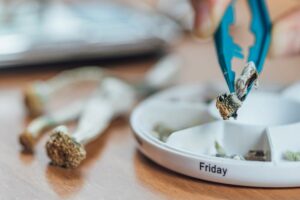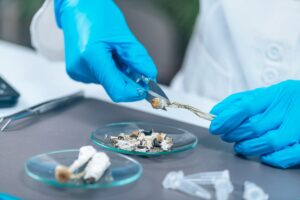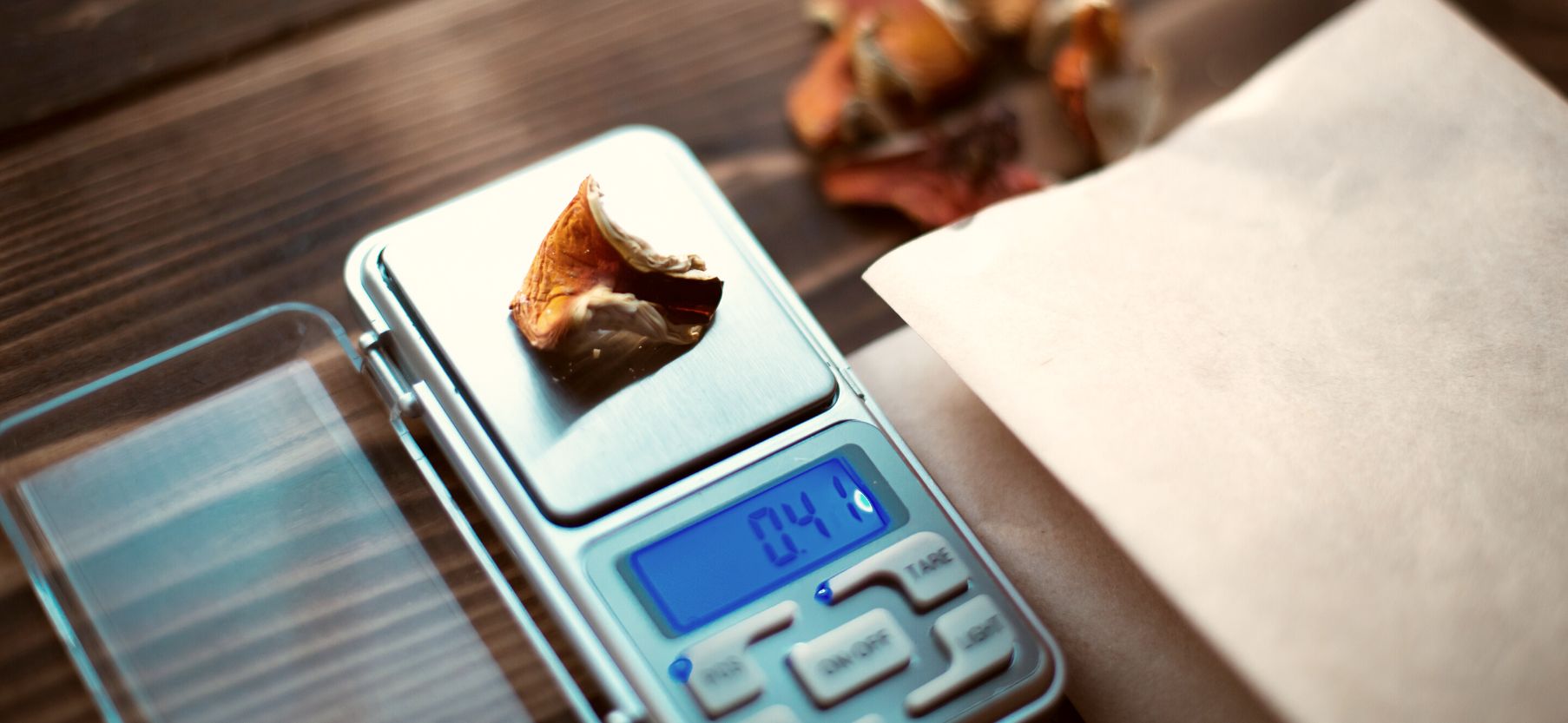A microdose of psilocybin — typically 50 to 150 milligrams, depending on the individual — is a dose so small as to be “sub-perceptual.” Microdosing means that the psychedelic effects felt on a higher dose of psilocybin or magic mushroom aren’t experienced, but other beneficial aspects are. Think: an uptick in productivity, an increase in empathy and openness, a creativity boost, or lower levels of stress and depression. While wellness advocates have long been promoting functional mushrooms for similar benefits, microdosing psilocybin is being added to the feel-better tool kit as an option for some.
How microdosing works
So, exactly what is microdosing and how is it done? “I’ll take a very small dose, every three or four days,” said microdosing proponent Rosie in an interview with The Guardian. This falls in line with the recommendations of the Natural Microdosing society, who suggest a frequency of every three to four days. Rosie weighs out 120mg (as opposed to a recreational dose of one to three grams) on a precise digital jewelry scale and then ingests her brand of mushroom therapy like food. “It gives me an alertness, an assurance. I move from a place of anxiety to a normal state of confidence, not overconfidence. You don’t feel high,” she adds, “just better.”

It was the so-called Silicon Valley biohackers who first began to buzz about microdosing’s benefits, but as an alternative therapy, mushrooms have properties that reach far beyond the increased creativity and productivity sought after by the tech set elite. Anecdotally, microdosers report that mushrooms have relieved symptoms of chronic pain, obsessive-compulsive disorder, post-traumatic stress disorder and anxiety disorders.
What the science says about microdosing
The scientific community, too, is in the early stages of investigating the effects of microdosing on mental health, conducting surveys and studies that show promising results. “Psychedelic research overall is very promising,” said neuroscientist Matthew Baggott in an interview with The Atlantic. “It’s likely that there are many different types of psychedelics that have different potential for helping people. We’ll need careful research to learn their true benefits and risks.”
The journal Psychopharmacology published an international survey on microdosing and mental health that found that, among the study’s 1,102 participants, 44 percent reported a significant improvement in their mental wellbeing. Of those surveyed, 50 percent said that microdosing allowed them to discontinue their use of prescribed antidepressants.

The question is whether or not these reported positives are the direct result of pharmacological effects. At Imperial College in London, England, researchers conducted a blind study in which participants received either a microdose of psilocybin or a placebo pill. “We’re looking to see if the mean effect exceeds that of the placebo effect,” neuroscientist Balázs Szigeti says in The Guardian. “If I had to guess, I’d be torn. I’m not questioning the fact that microdosers experience a positive effect, I’m questioning whether that’s down to psychological reasons or a pharmacological effect.”
“Our results are mixed,” Szigeti said after the study’s completion, “on the one hand, we observed microdosing’s benefits in a wide range of psychological measures; on the other hand, equal benefits were seen among participants taking placebos.”
Further rigorous study and the collection of more data are required. Matthew Johnson, a professor of psychiatry at Johns Hopkins University, says in The Atlantic that microdosing psilocybin could act “sort of like another form of an SSRI,” a type of drug often employed as an antidepressant, but without scientific investigation (and the funding required to do it which has been, for the most part, cut off since the Nixon administration put a halt to it in the U.S.) it’s difficult to measure the efficacy of microdosing and even more difficult to provide guidance on the proper way to judge dosage and frequency.
Should you try microdosing?
Like anyone interested in herbal therapy, people looking to explore the upside of microdosing psilocybin with a goal of improving their mental health are advised to do so under professional supervision and guidance. Because of legal issues, however, that can be difficult to find (though the establishment of psychedelic therapy clinics like Toronto’s Field Trip is a sign that things are moving towards an improvement in terms of access.
Still, DIY microdosers with first-hand experiences with mushroom therapy rave about the changes it’s brought to their lives. “It’s not a linear path — it’s not as simple as, ‘Do this one thing, and everything will be fixed.’ But I’m ridiculously happy,” said Lindsay Jordan, speaking with The Guardian. “Microdosing changed my life. For me, it was a catalyst for profound and wide-reaching changes.”

